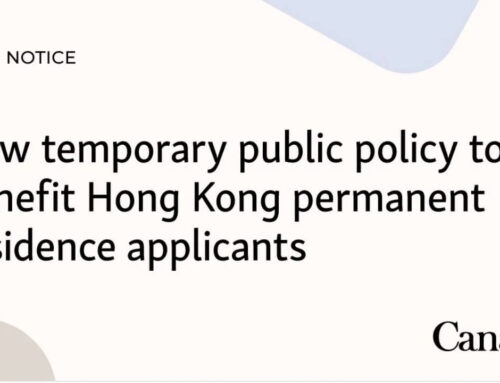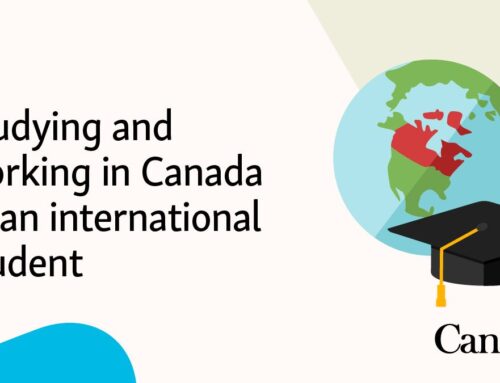Hire a temporary foreign worker through the Recognized Employer Pilot
Transition to Online Applications
As part of its efforts to modernize the Temporary Foreign Worker Program (TFWP) and improve client service, Service Canada has transitioned to online Labour Market Impact Assessment (LMIA) applications.
Since April 2023, employers and third-party representatives are required to submit LMIA applications using the LMIA Online Portal. To support the transition all application forms have been removed from the TFWP website.
The Recognized Employer Pilot (REP) is a 3-year pilot project beginning in September 2023. It offers a streamlined approach for employers who:
- regularly access the TFWP to fill in-demand positions on the REP occupations list, and
- meet the highest standards for working and living conditions and worker protection
Recognized employers can benefit from validity periods of up to 36 months and access to a simplified LMIA application when hiring additional workers through the LMIA Online Portal. If you’re unable to apply using the LMIA Online Portal, you can request an exemption.
Designed for administrative efficiency, the REP will provide:
- introduce longer LMIA validity periods, up to 36 months
- faster access to fill labour needs of employers
- access to employers to fill job vacancies in high-demand fields
- reduces the number of LMIA applications that would otherwise have been needed to hire the same number of TFW’s
- simplified LMIA’s for future needs of employers
- better protection for workers, and
- more flexibility for the Canadian labour market
Eligibility
When you apply for the REP, Service Canada will conduct a rigorous, upfront assessment of your LMIA application to determine your eligibility for the REP.
You may be eligible for the REP if:
- you’ve received at least 3 positive Labour Market Impact Assessment (LMIA) decisions in the last 5 years to hire temporary foreign workers (TFWs) for positions on the REP occupations list
- you meet the highest standards for working conditions, living conditions and worker protection as demonstrated through your history with the TFW Program (TFWP), and
- you agree to adhere to the regular TFWP requirements
If you meet the eligibility criteria listed above, you may still be found ineligible for the REP if:
you’ve received negative LMIA decisions
- you’ve been found non-compliant
- significant allegations have been made against you for putting the health and safety of TFWs at risk
- you’ve failed to meet requirements associated with inspection check-ins, or
- there’s a change in the labour market that impacts the position you’re trying to fill
You don’t need to provide additional information to apply for the REP. When you submit your LMIA, you can choose to apply for REP at the same time. We’ll determine whether you’re eligible based on your history with the TFWP. If you’re not approved for the REP, you’ll still get an LMIA decision.
The REP has 2 phases. The phase you apply for will depend on the position you’re trying to fill. Currently, 84 occupations are designated for the REP.
Phase 1 Occupations List
Starting September 2023, applications will be accepted for positions on Employment and Social Development Canada’s (ESDC) Phase 1 REP occupations list. These occupations have been determined to be in-demand and to have an insufficient domestic labour supply. To be eligible, you must have received at least 3 positive LMIA decisions since 2018.
| NOC code 2011 | NOC code 2021 | Occupation |
| 8431 | 85100 | Livestock labourers |
| 8431, 8611 | 85101 | Harvesting labourers |
| 8431 | 84120 | Specialized livestock workers and farm machinery operators |
| 8432 | 85103 | Nursery and greenhouse labourers |
Phase 2
If you’re looking to fill positions on the Phase 2 occupations list, you can apply starting in January 2024.
To be eligible, you must have received at least 3 positive LMIA decisions since 2019.
|
Phase 2 Occupation List
NOC code 2021 |
Occupation |
| 20010 | Engineering managers |
| 20011 | Architecture and science managers |
| 21321 | Industrial and manufacturing engineers |
| 21322 | Metallurgical and materials engineers |
| 21200 | Architects |
| 21201 | Landscape architects |
| 21202 | Urban and land use planners |
| 21203 | Land surveyors |
| 31300 | Nursing coordinators and supervisors |
| 31301 | Registered nurses and registered psychiatric nurses |
| 31100 | Specialists in clinical and laboratory medicine |
| 31101 | Specialists in surgery |
| 31102 | General practitioners and family physicians |
| 31103 | Veterinarians |
| 31111 | Optometrists |
| 31201 | Chiropractors |
| 31209 | Other professional occupations in health diagnosing and treating |
| 31303 | Physician assistants, midwives and allied health professionals |
| 31121 | Dieticians and nutritionists |
| 31112 | Audiologists and speech-language pathologists |
| 31202 | Physiotherapists |
| 32109 | Other technical occupations in therapy and assessment |
| 31203 | Occupational therapists |
| 31204 | Kinesiologists and other professional occupations in therapy and assessment |
| 32120 | Medical Laboratory technologists |
| 33101 | Medical laboratory assistants and related technical occupations |
| 31303 | Physician assistants, midwives and allied health professionals |
| 32120 | Medical laboratory technologists |
| 32104 | Animal health technologists and veterinary technicians |
| 32103 | Respiratory therapists, clinical perfusionists and cardiopulmonary technologists |
| 32121 | Medical radiation technologists |
| 32122 | Medical sonographers |
| 32110 | Denturists |
| 32111 | Dental hygienists and dental therapists |
| 32112 | Dental technologists and technicians |
| 33100 | Dental assistants and dental laboratory assistants |
| 32101 | Licensed practical nurses |
| 32102 | Paramedical occupations |
| 33102 | Nurse aides, orderlies and patient service associates |
| 33103 | Pharmacy technical assistants and pharmacy assistants |
| 33109 | Other assisting occupations in support of health services |
| 32109 | Other technical occupations in therapy and assessment |
| 31200 | Psychologists |
| 41301 | Therapists in counselling and related specialized therapies |
| 41310 | Police investigators and other investigative occupations |
| 44101 | Home support workers, caregivers and related occupations |
| 65310 | Light-duty cleaners |
| 63100 | Insurance agents and brokers |
| 62020 | Food service supervisors |
| 62200 | Chefs |
| 63200 | Cooks |
| 63201 | Butchers – Retail and wholesale |
| 65202 | Meat cutters and fishmongers – Retail and wholesale |
| 64100 | Retail salespersons and visual merchandisers |
| 65200 | Food and beverage servers |
| 65201 | Food counter attendants, kitchen helpers and related support occupations |
| 72106 | Welders and related machine operators |
| 72310 | Carpenters |
| 72311 | Cabinetmakers |
| 72400 | Construction millwrights and industrial mechanics |
| 72402 | Heating, refrigeration and air conditioning mechanics |
| 72405 | Machine fitters |
| 72406 | Elevator constructors and mechanics |
| 72420 | Oil and solid fuel heating mechanics |
| 72421 | Appliance servicers and repairers |
| 72422 | Electrical mechanics |
| 72423 | Motorcycle, all-terrain vehicle and other related mechanics |
| 72429 | Other small engine and small equipment repairers |
| 73200 | Residential and commercial installers and servicers |
| 73300 | Transport truck drivers |
| 85100 | Livestock labourers |
| 85101 | Harvesting labourers |
| 84120 | Specialized livestock workers and farm machinery operators |
| 85103 | Nursery and greenhouse labourers |
| 85102 | Aquaculture and marine harvest labourers |
| 85120 | Logging and forestry labourers |
| 94141 | Industrial butchers and meat cutters, poultry preparers and related workers |
| 94142 | Fish and seafood plant workers |
| 94210 | Furniture and fixture assemblers, finishers, refinishers and inspectors |
| 94211 | Assemblers and inspectors of other wood products |
| 94210 | Furniture and fixture assemblers, finishers, refinishers and inspectors |
| 95100 | Labourers in mineral and metal processing |
| 95101 | Labourers in metal fabrication |
| 95102 | Labourers in chemical products processing and utilities |
| 95103 | Labourers in wood, pulp and paper processing |
| 95104 | Labourers in rubber and plastic products manufacturing |
| 95106 | Labourers in food and beverage processing |
| 95107 | Labourers in fish and seafood processing |
Business Legitimacy
All employers applying to the TFWP must supply documents along with their LMIA application to demonstrate that their business and job offer are legitimate.
Recruitment and Advertisement
Before applying for the REP, employers must meet the minimum recruitment requirements of the stream for which they’re submitting an application. You’re required to recruit Canadians and permanent residents before offering a job to a TFW. You’ll also be required to continue your recruitment and advertising efforts until your job vacancies are filled. As part of your application, you’ll be asked to describe any recruitment efforts conducted.
For more information on the recruitment and advertisement requirements for a particular stream:
- Seasonal Agricultural Worker Program (SAWP) stream
- Agricultural stream
- Low-wage stream
- High-wage stream
Cap on Proportion of Low-Wage Positions
As of April 30, 2022, and until further notice, employers hiring for low-wage positions are subject to a 20% cap limit on the proportion of TFWs that can be hired at a specific work location. The cap is to ensure that Canadians or permanent residents are considered first for available jobs.
For applications received between April 30, 2022, and October 30, 2023, from employers hiring workers in low-wage positions in the following defined sectors and subsectors, you’re eligible for a cap limit of 30%:
- Construction (NAICS 23)
- Food manufacturing (NAICS 311)
- Wood product manufacturing (NAICS 321)
- Furniture and related product manufacturing (NAICS 337)
- Hospitals (NAICS 622)
- Nursing and residential care facilities (NAICS 623)
- Accommodation and food services (NAICS 72)
Exemptions To The Cap
Exemptions include applications for:
- on-farm primary agricultural positions, such as:
- farm managers/supervisors and specialized livestock workers (NOC codes 80020, 80021, 82030, 82031 and 84120)
- general farm workers, nursery and greenhouse workers and harvesting labourers (NOC codes 85100, 85101 and 85103)
- caregiving positions for health care institutions (NAICS 62) for NOC codes 31301, 32101 and 33102
- positions for which you’re submitting an application to support a TFW’s permanent residency under the Express Entry program
- highly mobile or truly temporary positions (120 calendar days or less); this duration could be extended on a case-by-case basis if you can demonstrate that the peak season, project or event operates beyond 120 calendar days:
- “highly mobile” is defined as a workforce that regularly crosses inter-jurisdictional boundaries (for example, provincial or territorial and/or international) as part of the business’ ongoing operations
- “truly temporary” is defined as a specific short-term period or singular event where the position won’t be filled after the worker leaves the country
- low-wage positions in seasonal industries that don’t go beyond 270 calendar days:
- “seasonal” is defined as when both the industry and the occupation experience significant fluctuations in labour demand between “peak” and “off-peak” periods, usually occurring on or around the same dates every year
- the exemption can only be used once per year in which the work is expected to begin, per work location. To use the one-time per year exemption for multiple applications, you must submit them all at the same time
REP Timelines
In order to manage intake volumes and ensure efficiency in resources to meet employer demands, the REP will have a phased approach as follows:
- September 12, 2023: Agricultural employer intake to align with peak agricultural season
- January 1, 2024: Intake for all other designated applications
- September 16, 2024: Intake for REP applications closes. However, employers enrolled in the REP can continue to submit requests using a simplified LMIA process during the pilot to fill positions that were approved in previous LMIAs if they need to hire more TFWs.
- December 31, 2026: REP expected to close
This alert is for informational purposes only. If you have any questions, please contact us via email at info@poonahimmigrationlaw.com for further information.





